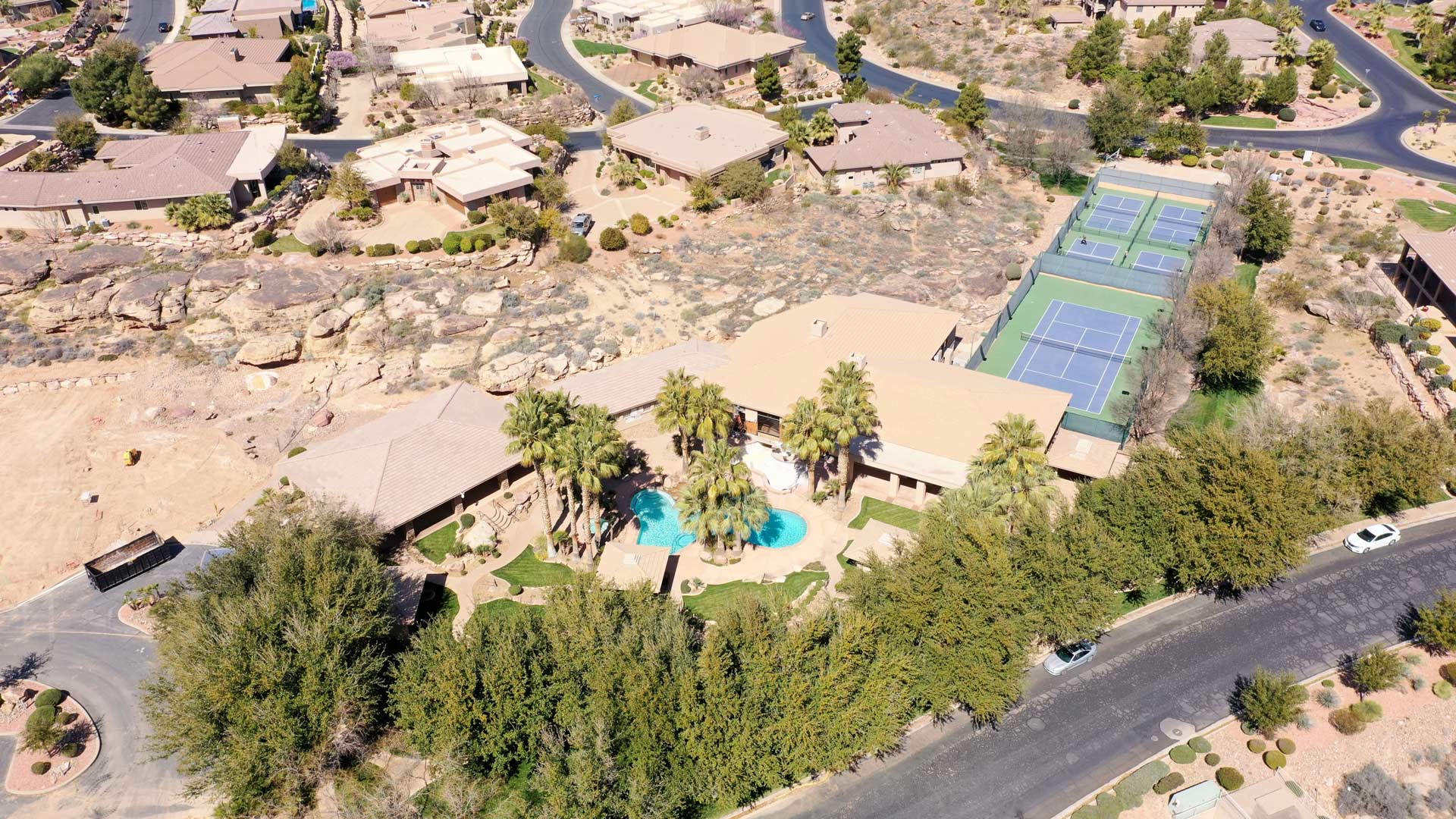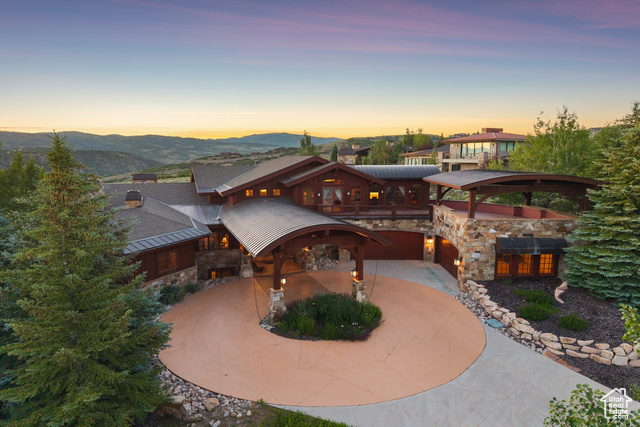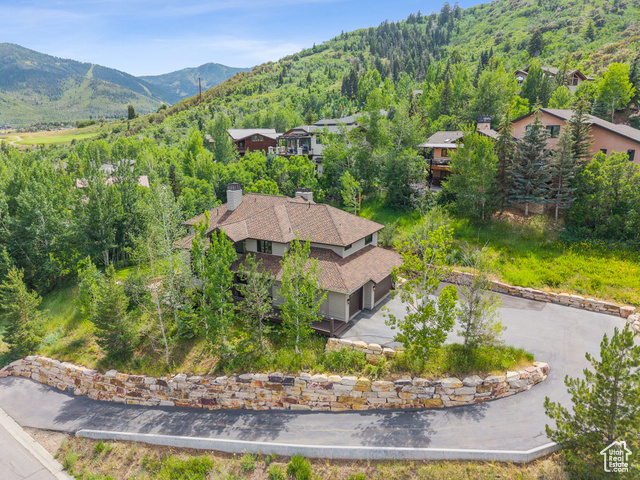

First, let me say that when I'm talking about a foreclosure, in this instance, I'm talking about a bank-owned property or an REO. This is a property that's already been foreclosed on and is owned by the bank. Buying an actual foreclosure from the county steps at auction is a whole different thing. When you're looking to buy a Utah bank-owned property, the things that you want to look out for are a little bit different than if you're buying a house from a private seller. None of these issues are deal-breakers. I don't want to discourage anyone from buying a Utah foreclosure because they are actually a good deal for the right person in the right situation.
No Seller Disclosures
The first thing to look out for is that the bank is not going to provide you any seller disclosure or basically any information, normally. The bank is not going to tell you how old the roof is, the water heater, the HVAC system, if there are foundation problems, if there are leaks. They're not going to tell you any of this information because they don't know about it. They know very little about the actual property. Not having the disclosure isn't a huge deal, but it does help to know how old the roof is and have some information about the house before you buy it, but it's not really a big deal.
High Earnest Money Deposit
The second thing to look out for is that a lot of times, the bank will require a high earnest money deposit when you're putting in your offer. A lot of banks, at least in my area, ask for higher deposits than normal sellers would ask for, and I believe this is to make sure that you actually close on the house and also, we'll get into, they're really looking for cash deals. So they want to see that you have a lot of money to be able to actually close, and so if you don't have a lot of money for a down payment or a lot of cash on hand, this can be an issue.
Banks don't like Contingencies
Number three is that banks do not like contingencies. They don't like mortgage contingencies, and they definitely don't like repair contingencies. So if you're putting an offer on a bank-owned property in Utah, you might not have a repair contingency, or you might not be able to get a mortgage contingency, which means you could lose that high escrow deposit if you end up not closing. And if you're actually getting a mortgage, this can be a deal-breaker because you really don't want to enter into a situation where if, for whatever reason, you're not able to get a mortgage, you would lose escrow deposit.
Harder to get financing
Number four is where it's difficult to get a traditional mortgage on a bank-owned property. They normally need a lot of work and especially if you're using FHA, VA loan, or Utah First time home buyer programs, it's really tough to pass appraisals on any of these loan programs, and so if repairs are needed, you would actually probably end up having to do them yourself before you close on the house, and I really never recommend that because so many things can go wrong. You spend time fixing up someone else's house that you don't even own, and then you just lose that money because you end up not being able to close anyway. I'd stay away from that type of situation. Not all bank-owned properties are in this category, but the majority of them are. A lot of first time home buyers think that they can just use their FHA or VA loan and buy a house that needs work and then fix it up, which is a smart idea, but in practice, it's very, very difficult to close on any house that needs repairs and most of these bank loan properties are in crappy condition.
Banks won't make repairs
Issue number five is that the banks aren't going to make repairs. It's funny, I've actually negotiated where a bank actually did make repairs to close on a house, but that is very rare and actually blew me away that they agreed to do it. Most of the time, the bank is going to say, "Screw you. I'm not doing anything. Either buy the house the way it is or kick rocks."
Banks use their own sales contracts
Number six is to watch out for amended sales contracts. A lot of times, banks will have their own addendums to their agreement of sale, and they basically wipe out all the standard agreement of sale verbiage, and it puts everything in the bank's favor as far as the contract. And a lot of people will just sign this stuff, but as an agent, when I look at this, I get concerned a lot of times because it takes a lot of the buyer's rights and abilities away.
I just want to put that out there for people, especially first-time home buyers. You really lose a lot of leverage when you're buying a foreclosure because the banks, just don't really care. They have a bunch of properties. They have a bunch of money and you would think they would want to sell the house and get rid of it because they're losing money, but they really don't care. At least from my perspective, that's what it seems like, and I do a lot of bank-owned stuff so it is what it is.
Negotiating is harder
Number seven, negotiating with the bank is like negotiating with a crazy person most of the time. Sometimes, they have good asset managers and they make sense, but a lot of times, these banks don't know anything about the property. They don't know anything about the area.
They don't know what the pricing should be and the house could be falling down and they could be overpricing it or they could list it really low and then cause a lot of bids that go in. So you never know what you're going to get when you're negotiating with the bank. When you're buying a foreclosure, it helps to have an agent that really knows the value in the area and understands rehab costs, because then you're going to want to make sure that they give you a good CMA or a comparative market analysis on that property to know if you're offering a good amount or too much or too low because whatever the list price is, I will not pay any attention to that. Also, banks counter in funny ways. Sometimes they won't counter or they can respond by saying, "Give us your highest and best offer," and basically they want you to bid against yourself, and they'll say that they have multiple offers.
You don't know if these offers are really low offers and yours is the highest or if you're low. It's really tough to figure out because they really won't tell you any information. When you're dealing with another agent, a normal transaction, you can try to feel them out and see where they are, but with the bank, you never know. And that's not to say you can't read into things, especially as an agent that deals with a lot of bank-owned properties, I can kind of read into it but at the end of the day, it's still a bit random.
Using a mortgage is going to be harder
The last thing to look out for is that if you're using a mortgage, you're going to be at a big disadvantage to anyone offering cash. This is normal with everything, but even more with foreclosures. The bank is going to want to take a cash offer a lot faster than they're going to want to take your mortgage contingency or they might not even allow you to have the contingency.
So it makes it really difficult to be competitive in the marketplace. If you're offering $100,000 and a cash buyer is offering 90, a lot of times, the bank will take that $90,000 offer. Now, there are special programs where, if you're going to be occupying the property, you actually get preference over an investor. So sometimes, it could work to your advantage, but most of the times, it's really not good. Generally and overall, using a mortgage to buy a foreclosure, unless it's in good condition, is really tough. It's really difficult. I don't really recommend it unless you really know what you're doing or there's no inventory and you have good connections to get houses fixed up and you're willing to take the risk of losing a high escrow deposit and kind of roll with the punches as far as contingencies and other issues.
But for the regular person just buying a house, I would steer away from buying a foreclosure unless you're willing to deal with all of these things. And again, I think buying a foreclosure is actually a really good thing to do financially, but just understand all the complications and issues and risks involved and you'll be fine.
If your looking for a licensed Utah real estate agent give us a call at 435-414-8597
Related Articles:
- How To Buy A House Before You Sell Understanding Bridge Loans In Utah Real Estate
- Deck Upgrades On A Budget Tips And Tricks
- Exploring St George Utah Alternative To Sedona
- Utah Home Buying Steps Nobody Tells You About
- Mastering The Art Of Estimating Repair Costs For Rental Properties
- Reasons Why You Should Repaint Before Selling Your Home
- What Is Required In Utah For Home Improvement Sales Tax
- What Is The Multiple Listing Service Or Mls
- July 2023 Housing Market Update
- Unlocking Homeownership Va Loan Updates For 2025 Every Veteran Should Know
- Modern Outdoor Lighting Types That Can Boost Your Homes Value
- Unlocking The Dream Utah First Time Home Buyer Grants







